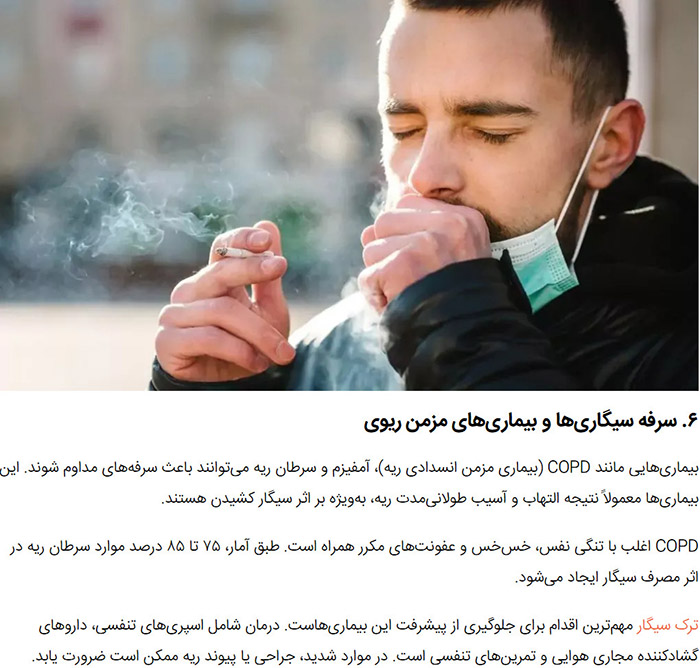A smoker’s cough is one of the most common early signs of chronic lung damage and can develop into more serious conditions over time. Long-term exposure to cigarette smoke irritates the airways and destroys lung tissue, leading to persistent inflammation. This damage can result in chronic obstructive pulmonary disease (COPD), emphysema, and even lung cancer, all of which are strongly linked to smoking. In fact, research shows that 75 to 85 percent of lung cancer cases are directly caused by tobacco use.
COPD often begins with a chronic cough and gradually progresses to include shortness of breath, wheezing, and frequent respiratory infections. Emphysema, a form of COPD, damages the air sacs in the lungs, making it increasingly difficult to breathe. Lung cancer may also present with a persistent cough, chest pain, or unexplained weight loss.
The most important step in stopping the progression of these diseases is quitting smoking, which can significantly improve lung function and overall health. Treatment options vary based on severity and may include inhalers, airway dilators, and pulmonary rehabilitation such as specialized breathing exercises. In advanced cases, more intensive interventions like surgery or even lung transplantation may be required to manage symptoms and improve quality of life.

